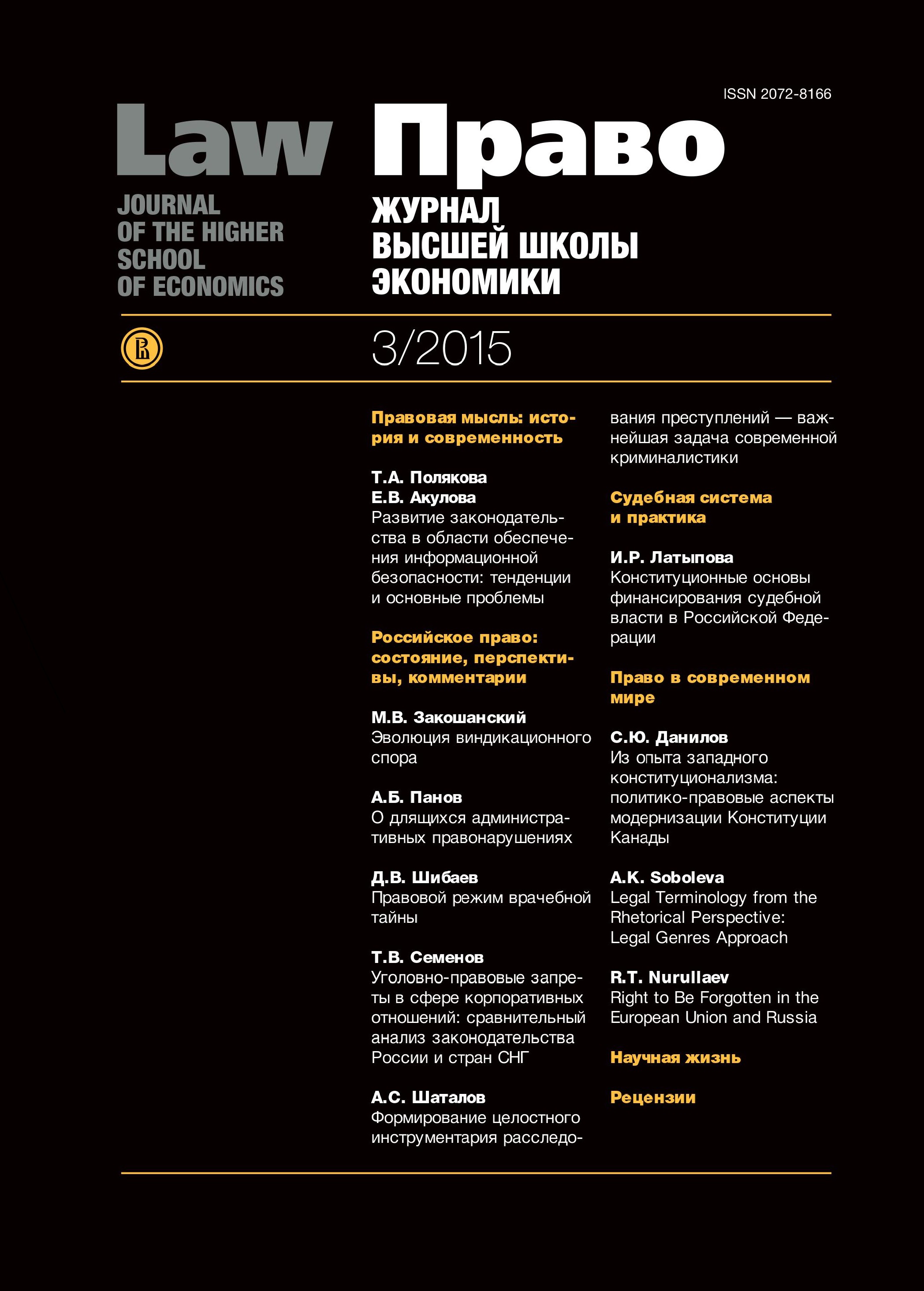Criminal Law Prohibitions in Corporate Relations: a Comparative Analysis of the Legislations in Russia and the CIS countries
Abstract
The article is devoted to an insufficiently developed topic of the comparative analysis of criminal law prohibitions in corporate relations. The object of the comparative legal research is the criminal legislation of the CIS countries (Armenia, Azerbaijan, Belarus, Kazakhstan, Kyrgyzstan, Moldova, Tajikistan, Turkmenistan, Ukraine). The focus is made on the legislations with the similarity to Russian law: Kazakhstan, Belarus, Ukraine and Moldova. The research has shown that the CIS countries have the convergence of criminal law prohibitions (unlawful deprivation of rights to participate in a legal entity, abuse of power in the corporate governance, various violations associated with the register of securities holders, disclosure procedures and providing information to participants). Most of the prohibitions first appeared in Russia early in the 21st century and were subsequently included in the legislations of the other states. The similarity is seen not only in the prohibitions, but the legislative mechanics of presentation. Moldova has the highest level of criminal law repression. Some actions recognized as crimes may only be considered as torts in Moldova. This also concerns majour transactions and the related-party transactions in the absence of a proper corporate approval. Criminal law tools in many countries have an anti-raider trend. At the same time, the analysis of the legislations of Armenia, Azerbaijan, Kyrgyzstan, Turkmenistan and Uzbekistan lack the description of actions which could be qualified as criminal law prohibitions incorporate relations. The author holds the view that the reason for the situation in criminal law may be accounted for an insufficient level in the development of economics, business and high-profile cases when the rights of participants are violated.





